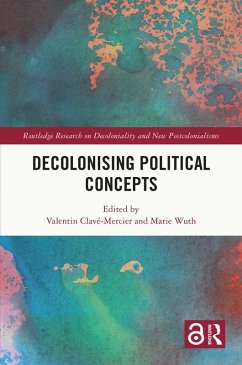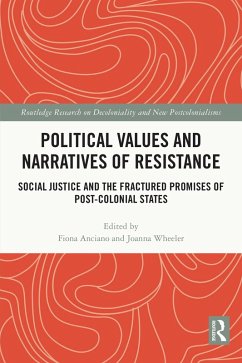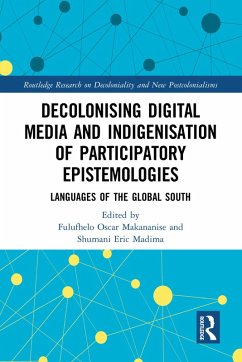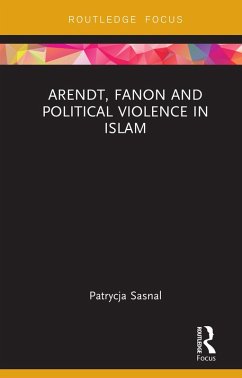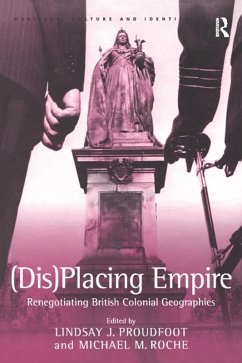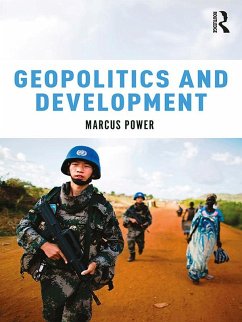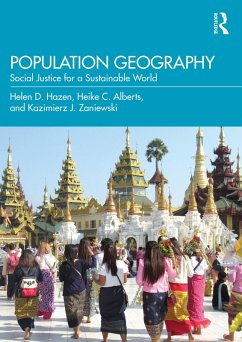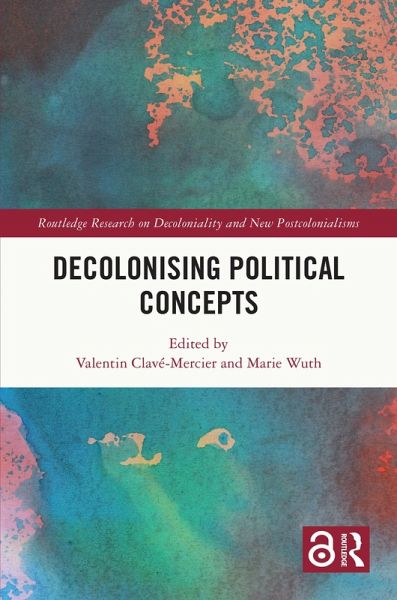
Decolonising Political Concepts (eBook, PDF)
Versandkostenfrei!
Sofort per Download lieferbar
0,00 €
inkl. MwSt.
Weitere Ausgaben:

PAYBACK Punkte
0 °P sammeln!
This book presents a transdisciplinary and transnational challenge to the enduring coloniality of political concepts, discussing the need to decolonise both their theoretical constructions as well as their substantive translations into practices.Despite the acclaimed twentieth-century decolonisation waves, coloniality still remains in subtle and obvious practices, in visible and invisible mechanisms of power, and in the privileging of certain knowledges and the dismissing of others. Decolonising Political Concepts critically addresses the role political concepts play in the continuing legacies...
This book presents a transdisciplinary and transnational challenge to the enduring coloniality of political concepts, discussing the need to decolonise both their theoretical constructions as well as their substantive translations into practices.
Despite the acclaimed twentieth-century decolonisation waves, coloniality still remains in subtle and obvious practices, in visible and invisible mechanisms of power, and in the privileging of certain knowledges and the dismissing of others. Decolonising Political Concepts critically addresses the role political concepts play in the continuing legacies of colonialism and ongoing coloniality. This book, building on postcolonial and decolonial thinkers and ideas, demonstrates how concepts may be used as oppressing political and epistemological tools. By presenting efforts to decolonise political concepts, the book signals the potential for genuinely postcolonial academic and political contexts. Bringing together scholars from different disciplines and engaging with a wide array of geographical contexts, the chapters examine concepts such as agency, violence, freedom, or sovereignty. This book enables readers to critically engage with concepts used in political discourse and allows them to reflect on their impact and alternatives.
It will appeal to graduate students and scholars from international relations, social sciences, or philosophy, as well as to socio-political actors engaged in decolonisation agendas.
The Open Access version of this book, available at http://www.taylorfrancis.com, has been made available under a Creative Commons [Attribution-Non Commercial-No Derivatives (CC-BY-NC-ND)] 4.0 license.
Despite the acclaimed twentieth-century decolonisation waves, coloniality still remains in subtle and obvious practices, in visible and invisible mechanisms of power, and in the privileging of certain knowledges and the dismissing of others. Decolonising Political Concepts critically addresses the role political concepts play in the continuing legacies of colonialism and ongoing coloniality. This book, building on postcolonial and decolonial thinkers and ideas, demonstrates how concepts may be used as oppressing political and epistemological tools. By presenting efforts to decolonise political concepts, the book signals the potential for genuinely postcolonial academic and political contexts. Bringing together scholars from different disciplines and engaging with a wide array of geographical contexts, the chapters examine concepts such as agency, violence, freedom, or sovereignty. This book enables readers to critically engage with concepts used in political discourse and allows them to reflect on their impact and alternatives.
It will appeal to graduate students and scholars from international relations, social sciences, or philosophy, as well as to socio-political actors engaged in decolonisation agendas.
The Open Access version of this book, available at http://www.taylorfrancis.com, has been made available under a Creative Commons [Attribution-Non Commercial-No Derivatives (CC-BY-NC-ND)] 4.0 license.
Dieser Download kann aus rechtlichen Gründen nur mit Rechnungsadresse in A, B, BG, CY, CZ, D, DK, EW, E, FIN, F, GR, HR, H, IRL, I, LT, L, LR, M, NL, PL, P, R, S, SLO, SK ausgeliefert werden.




